Prefer to Listen Instead? Check out the PDH Podcast discussion on this topic:
Handling the cost and complexity of health insurance can feel overwhelming, especially with premiums, copays, and deductibles constantly on the rise. Last year, the average annual premium for employer-sponsored family coverage rose to $23,968—a 7% increase from the prior year alone. Adding to the challenge, the typical American now spends around $13,500 each year on healthcare, placing a significant financial strain on many.
Enter Direct Primary Care (DPC), which provides cost-effective, personalized, quality primary care services for a fixed monthly fee. DPC eliminates the need for copays and deductibles, making routine healthcare more accessible and predictable while allowing members to minimize insurance-related costs and maximize healthcare value.
But where and how does insurance fit into the Direct Primary Care equation? In this blog, we’ll explore how optimizing health insurance alongside DPC can give you better control of your healthcare, eliminate insurance hassles, and provide flexibility in managing your wellness.
Finding the Right Balance: Health Insurance and Direct Primary Care
When it comes to healthcare, understanding how optimizing health insurance with a DPC membership can help you get the most out of both. Health insurance is invaluable for major medical events, like surgeries or emergency hospitalizations.
However, for everyday healthcare needs—such as regular checkups, minor illnesses, or managing chronic conditions—Direct Primary Care is often a more cost-effective option. With Prime Direct Health, you pay a predictable monthly fee that covers routine care without the need for co-pays, deductibles, or surprise fees. This setup means fewer headaches with insurance claims, optimizing health insurance by allowing you to reserve it for emergencies when you truly need it.
Prime Direct Health’s membership covers most of your primary care needs, but health insurance can still be valuable for specialized services. Here’s how to make the most of both:
- Labs and Diagnostics: We work with labs and imaging centers to offer discounted rates on routine blood work as well as X-rays and CT scans. If you have insurance, you can choose to bill these services directly to it, reducing your out-of-pocket costs.
- Prescription Coverage: Our in-house pharmacy provides many common medications at a fraction of standard retail prices. For more expensive medications, we help you navigate insurance coverage or find discounts through services like GoodRx, Amazon Pharmacy, or local compounding pharmacies.
- Specialist Referrals: If a specialist is needed, insurance can cover consultations and treatments outside our scope. We support you in using insurance efficiently, guiding you on prior authorizations and coverage details to reduce your out-of-pocket expenses.
- Unexpected Emergencies: While Prime Direct Health covers your everyday care, we recommend keeping some type of ‘catastrophic’ or ‘emergency’ insurance plan for unexpected events, such as surgeries, hospital stays, or emergencies. Combining DPC with a high-deductible plan can be a smart way to have routine care covered affordably while staying protected for high-cost needs.
How Direct Primary Care Can Be a Game-Changer
In addition to offering a simpler, transparent fee structure, DPC also means less time dealing with insurance paperwork. With a DPC model, you won’t have to worry about co-pays, deductibles, or navigating complicated claims for your routine healthcare needs. Our team understands the intricacies of optimizing health insurance and can advise on where it makes sense to use it—such as major lab work or complex health scenarios—so you don’t waste time or money.
By combining the predictable costs of a DPC membership with the selective use of insurance, you can enjoy comprehensive healthcare without the financial surprises or limitations that often come with traditional insurance-based models. At Prime Direct Health, we empower you to focus more time on your health instead of the stresses of navigating complex insurance processes.
Ready to take control of your healthcare experience? Schedule a consultation with Prime Direct Health today and start optimizing your healthcare benefits with us!
Direct Primary Care (DPC) and Health Insurance: FAQ
How do Direct Primary Care and Health Insurance work together?
Direct Primary Care (DPC) offers comprehensive routine care for a predictable monthly fee, eliminating co-pays, deductibles, and surprise charges, optimizing health insurance by using it only for major medical events like emergencies, surgeries, or hospitalizations.
How can I save money by combining Direct Primary Care (DPC) with health insurance?
DPC helps you save by covering most routine care needs at a predictable cost, reducing reliance on expensive insurance plan premiums and co-pays. You can opt for high-deductible insurance, which has lower premiums, knowing your primary care is covered through DPC and optimizing health insurance usage.
Does DPC cover lab tests and diagnostics?
DPC often includes basic lab and diagnostic testing. Check with your DPC provider to find out which specific tests and procedures are included in your membership. When additional testing is required, providers often work with labs to offer discounted rates. You can also choose to bill your insurance for these services if you prefer.
Does DPC cover prescription medications, or do I need prescription insurance?
DPC often includes access to highly discounted prescription medications, but it doesn’t typically cover the full cost. While you may not need separate prescription insurance for common, low-cost medications, having prescription insurance can help cover the costs of more expensive or specialized drugs not included in DPC plans. Alternatively, your DPC provider can help you find discounts through services like GoodRx, Amazon Pharmacy, or local compounding pharmacies.
Does DPC handle specialist referrals?
Yes, if a specialist is needed, your DPC provider can help with referrals and guide you through the insurance process, including prior authorizations, to minimize costs.
Does DPC cover emergencies?
While DPC provides comprehensive primary care, it’s recommended that you maintain health insurance for major medical emergencies like hospital stays or unexpected medical events.
What are the benefits of using DPC alongside insurance?
Combining DPC with insurance offers comprehensive healthcare coverage while minimizing costs. DPC covers routine care at a predictable price, while insurance protects against high-cost medical events, optimizing health insurance usage.
How does Prime Direct Health help me navigate insurance and optimize my healthcare benefits?
Prime Direct Health helps you navigate insurance by pairing personalized primary care with strategic use of health insurance for major medical events. With our Direct Primary Care (DPC) model, you pay a fixed monthly fee for routine care, eliminating co-pays and deductibles. This allows you to reserve your insurance for high-cost needs like hospitalizations or specialized treatments. We also assist with discounts on labs, prescriptions, and specialist referrals, guiding you to maximize your insurance benefits and minimize out-of-pocket expenses.



